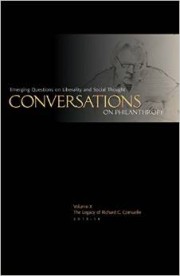The Morality of Capitalism
The Manhattan Institute has published Senior Fellow Jim Otteson’s essay, An Audacious Promise: The Moral Case for Capitalism. Otteson asks the pressing question that seems to be on a lot of minds these days: “What about inequality?” His answer, in part:
Even if we do not all get rich at the same rate, we all still get richer. To see the importance of this point, ask yourself: If you could solve only one social ill—either inequality or poverty—which would it be? Or suppose that the only way to address poverty would be to allow inequality: Would you allow it? This seems a no-brainer: poverty is a far larger factor in human misery than is inequality. If we could have steadily fewer people suffering from grinding poverty, is that not something to wish for, even if it comes with inequality? This appears to be the position in which we find ourselves. The only way we have discovered to raise people out of poverty is the institutions of capitalism, and those institutions allow inequality. Keeping people in poverty seems too high a price to pay in the service of equality. One is tempted to say that only a person who has never experienced poverty could think differently.
Otteson’s answer turns on the stunning expansion of the economic output and life expectancy that have coincided with the expansion of capitalism, what Dierdre McCloskey describes as the hockey stick.
For McCloskey, the question seems to be not whether or not capitalism is moral, but whether capitalism was even possible apart from an ethical revaluation of the bourgeois around the 17th century:
The theorizing of ethics changed in Northwestern Europe in the eighteenth century — for the better in its application to the economy and polity, and for the worse in the understanding of the good life by some of the leading theorists. The high theory in Kant and Bentham was abstracting away from ordinary life at the same time the low theory in Hume and Smith and the Anglican theorists of the new economy was developing an admirably practical and bourgeois cast.
If McCloskey is right, then we should be wary of those who try to pit the “market society” against “civil society”, for both of these institutions have solid roots in the same “low theory” and, as Otteson points out, they are in fact intricately entwined. Ideas, and our talk about them, really do have consequences.




